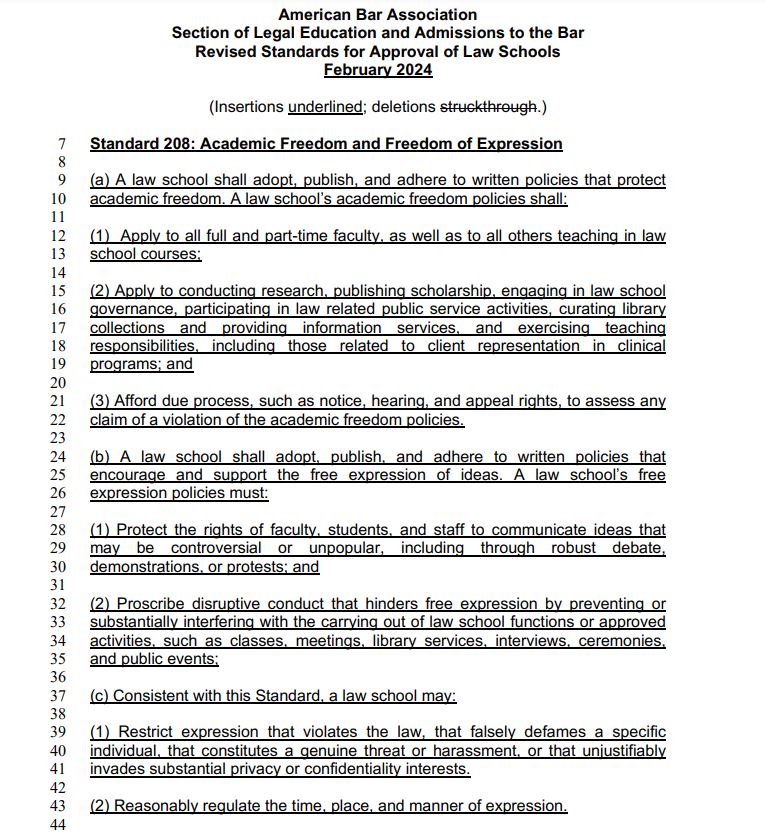
The American Bar Association’s policymaking body recently approved a free speech requirement for its accreditation criteria. The vote to approve the resolution was made at the group’s Feb. 5 meeting.
“A law school shall adopt, publish, and adhere to written policies that protect academic freedom,” the resolution states. The free speech policy at each law school must apply to research, scholarship, law school governance, and teaching responsibilities, among other campus activities.
The policy, which will govern students, faculty and staff, must also “afford due process, such as notice, hearing, and appeal rights, to assess any claim of a violation of the academic freedom policies.”
Called “Standard 208: Academic Freedom and Freedom of Expression,” to follow the new rule law schools also must prohibit “disruptive conduct that hinders free expression by preventing or substantially interfering with the carrying out of law school functions or approved activities, such as classes, meetings, library services, interviews, ceremonies, and public events.”
The free speech policy was first proposed in August 2022, but never got a vote, according to the ABA resolution’s report on the matter.
“In the background, but not influencing the creation of Standard 208, were the widely publicized disruption of a speech at Stanford Law School in March 2023 and a letter that month to the Council from the U.S. House Committee on Education and the Workforce asking the Council to investigate the Stanford Law School’s compliance with Standard 405.”
Standard 405 only required a law school to have “an established and announced policy with respect to academic freedom and tenure.”
The new policy vastly expands that requirement.

MORE: DEI law dean who berated federal judge out at Stanford
IMAGE: Shutterstock
Like The College Fix on Facebook / Follow us on Twitter




Add to the Discussion